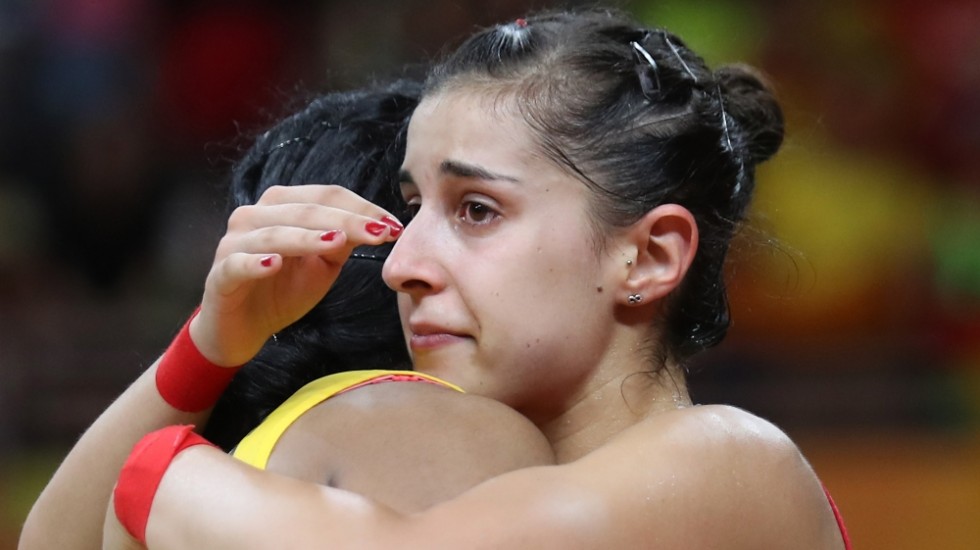
A Revolution in Rio
The most open Olympics ever!
The Badminton Competition that concluded yesterday at the Rio Olympics proved what followers of the sport have observed over the last two years: the playing field – or rather court – in elite badminton is more level than at any time before.
Gold medallists of four nationalities in five categories. Nine countries finishing on the podium – unprecedented in badminton history.
A first gold for Spain. A first gold for Japan. A first silver for India. Three silvers for Malaysia, also uncharted territory.
Most importantly, no nation won two medals in any category – a definitive statement on how competitive each category is now.
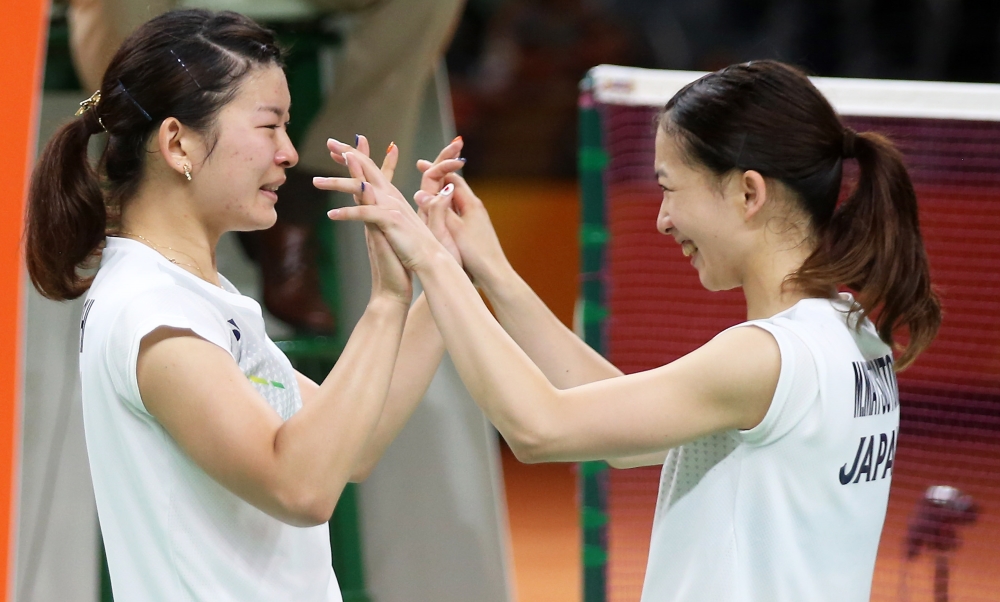
Who could have foreseen this?
Rio 2016 will be remembered by ordinary fans and history buffs for both revolutionary development and a touch of the familiar.
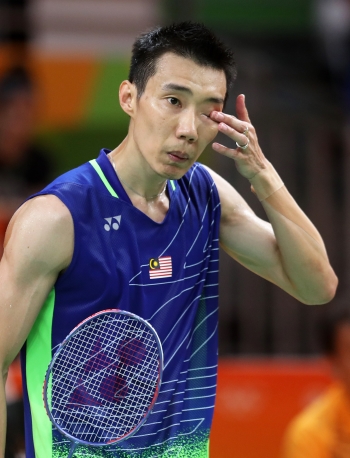 The familiarity came on the final two days when China, facing a gold-medal drought for the first time since 1992, pulled itself together for the last two events. Zhang Nan and Fu Haifeng saved two match points in the Men’s Doubles final – or rather Goh V Shem and Tan Wee Kiong squandered them – to prolong Malaysia’s agonising wait for a first Olympic gold medal.
The familiarity came on the final two days when China, facing a gold-medal drought for the first time since 1992, pulled itself together for the last two events. Zhang Nan and Fu Haifeng saved two match points in the Men’s Doubles final – or rather Goh V Shem and Tan Wee Kiong squandered them – to prolong Malaysia’s agonising wait for a first Olympic gold medal.
A day later, sentimental favourite Lee Chong Wei was once again thwarted at the final step by a Chinese rival. This time it was the sturdy Chen Long.
The preceding days, however, had witnessed scenes never before seen in badminton. Midway through the tournament, the first quake struck for China: hot contenders and Mixed Doubles defending champions Zhang Nan and Zhao Yunlei, who had established a vice-like grip over Tontowi Ahmad and Liliyana Natsir in recent times, fell apart against the Indonesians in the semi-finals. On a neighbouring court, an equally sensational drama followed, with China’s Xu Chen/Ma Jin also being beaten in straight games by Malaysia’s Chan Peng Soon/Goh Liu Ying. China would not be able to repeat their sweep of the London 2012 Olympic Games.
The next three days bore more nightmares for China. The powerhouse was shut out of the Women’s Doubles podium for the first time in history with Yu Yang/Tang Yuanting falling in the semi-finals and the bronze medal play-off. Japan ascended the throne, courtesy Misaki Matsutomo and Ayaka Takahashi, who pulled off a sensational last-gasp victory over Denmark’s Christinna Pedersen and Kamilla Rytter Juhl.
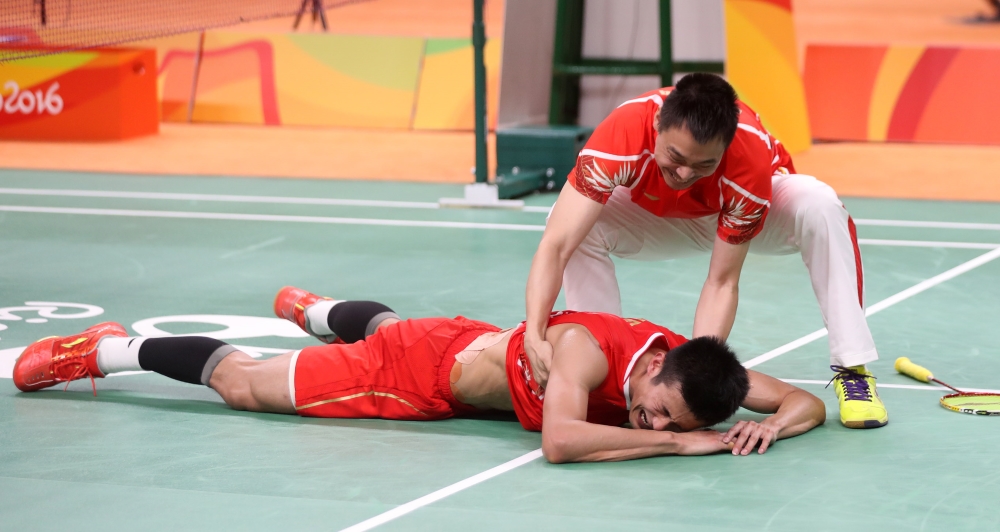
The last of China’s Women’s Singles contenders was shown the door in the semi-finals: defending champion Li Xuerui hobbling off with a knee injury against Spain’s Carolina Marin who dominated their 56-minute contest. Li was unable to contest the play-off for bronze – it would be the first time since 1996 that China were denied a medal in Women’s Singles.
This would be Marin’s year. The Spaniard (featured image) blew away her opponents with speed, power and accuracy. The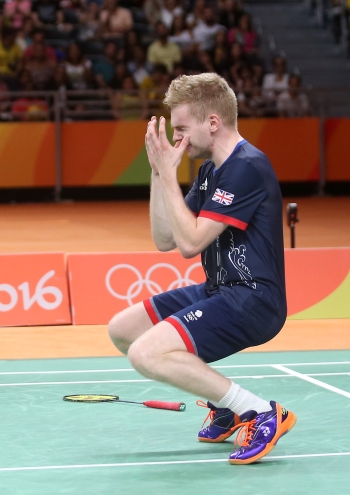 23-year-old was tested only in the final against the equally doughty PV Sindhu of India, aged 21. Eighty-three minutes of intense badminton later, the former flamenco dancer was doing a jig of a different sort. Marin had become the first non-Asian Women’s Singles winner.
23-year-old was tested only in the final against the equally doughty PV Sindhu of India, aged 21. Eighty-three minutes of intense badminton later, the former flamenco dancer was doing a jig of a different sort. Marin had become the first non-Asian Women’s Singles winner.
Yet, with their backs to the wall, the Chinese finished strongly. Zhang and Fu capitalised on some nervous late play by Malaysia’s Goh and Tan to grab the Men’s Doubles gold. The Chinese had been equally composed – and perhaps a trifle lucky – in squeezing through the quarter-finals when Korea’s Kim Gi Jung and Kim Sa Rang blew three match points.
Perhaps the match that will be most remembered will be the Men’s Singles semi-final between defending champion Lin Dan of China and long-time challenger Lee Chong Wei. After a fascinating 83-minute duel that hit the highest notes, producing an essay of classic court-craft, control, attack and defence, Malaysia’s Lee celebrated.
If that sounded like a good omen for his chances in the final, it was not to be. Two-time World champion Chen Long remained solid as a rock, even as his great opponent failed to lift himself. China earned its second gold of the tournament as a Lee Chong Wei smash flew wide.
It would be a mistake though to equate the Badminton Competition only with the accomplishments of the stalwarts and the powerhouses. The packed venue on the early days of competition as the boisterous home crowd cheered for its local stars Ygor Coelho de Oliveira and Lohyanny Vicente rivalled the best scenes from Istora Senayan. Players such as Mexico’s Lino Munoz, Cuba’s Osleni Guerrero, Brazil’s Oliveira, USA’s Iris Wang, to name a few, gave combative displays – and benefited from the Pan American sentiment.
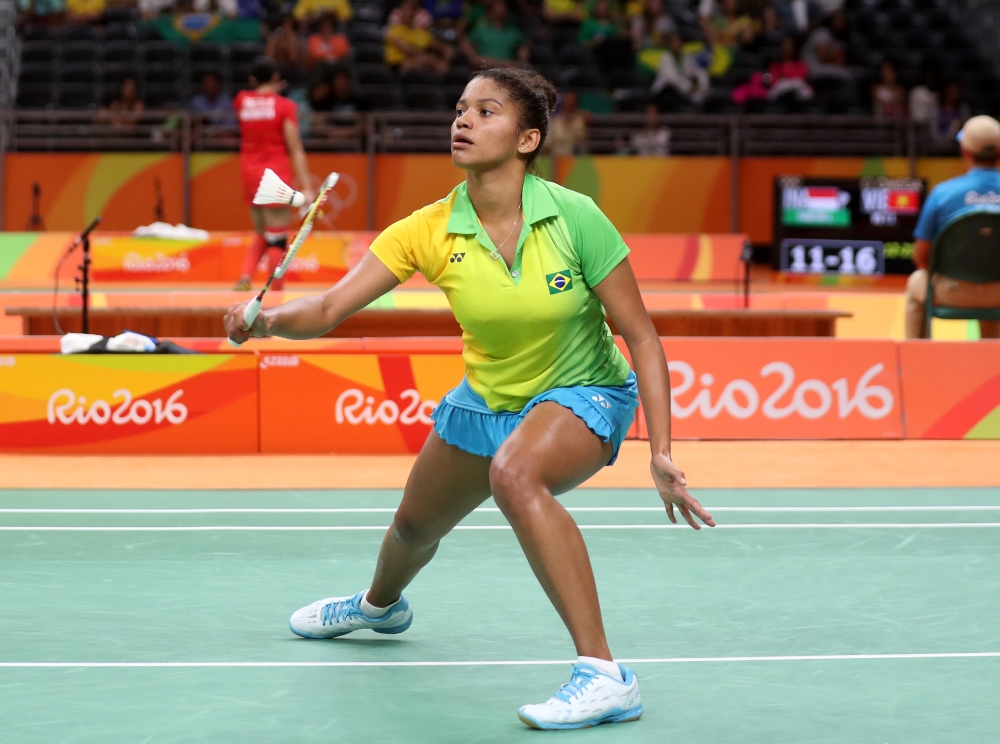
Naturally, there were a few upsets too: Ukraine’s Maria Ulitina shocking India’s Saina Nehwal; Bulgaria’s Linda Zetchiri and Ireland’s Scott Evans trumping higher-rated rivals (Great Britain’s Kirsty Gilmour and Germany’s Marc Zwiebler respectively).
In the doubles events, the pairs that caused the most damage to higher reputations were Poland’s Robert Mateusiak and Nadiezda Zieba and Great Britain’s Marcus Ellis and Chris Langridge.
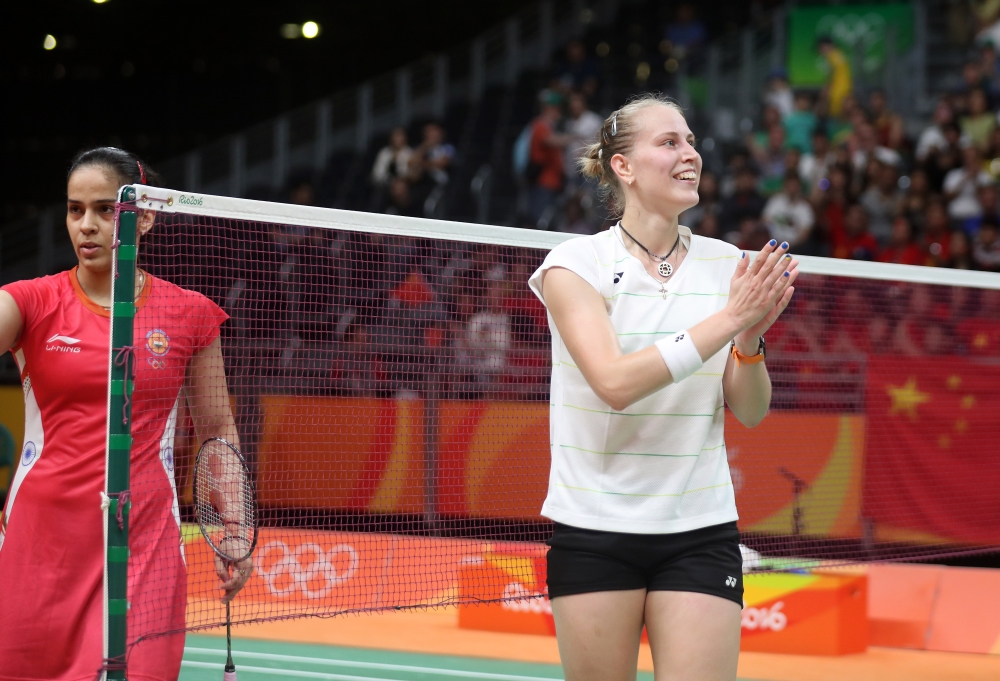
The Brits’ fine campaign that ended with a surprise Men’s Doubles bronze promises to revitalise badminton in the land that gave the sport to the world.
Perhaps the last word should belong to Mateusiak who, at 40, showed that ‘seniors’ can still excel at top-flight badminton.
Asked how he had managed to maintain a high level in his fifth Olympics, Mateusiak said: “You always have to be mentally strong. Badminton is a difficult sport, it has so many details. At the last Olympics we were so close to a medal. We’ve lost a few matches like that, but we’ve also won matches like that.
“So badminton teaches you to be strong, mentally, and, in real life, it helps a lot because you’re ready for difficult situations in your private life.”
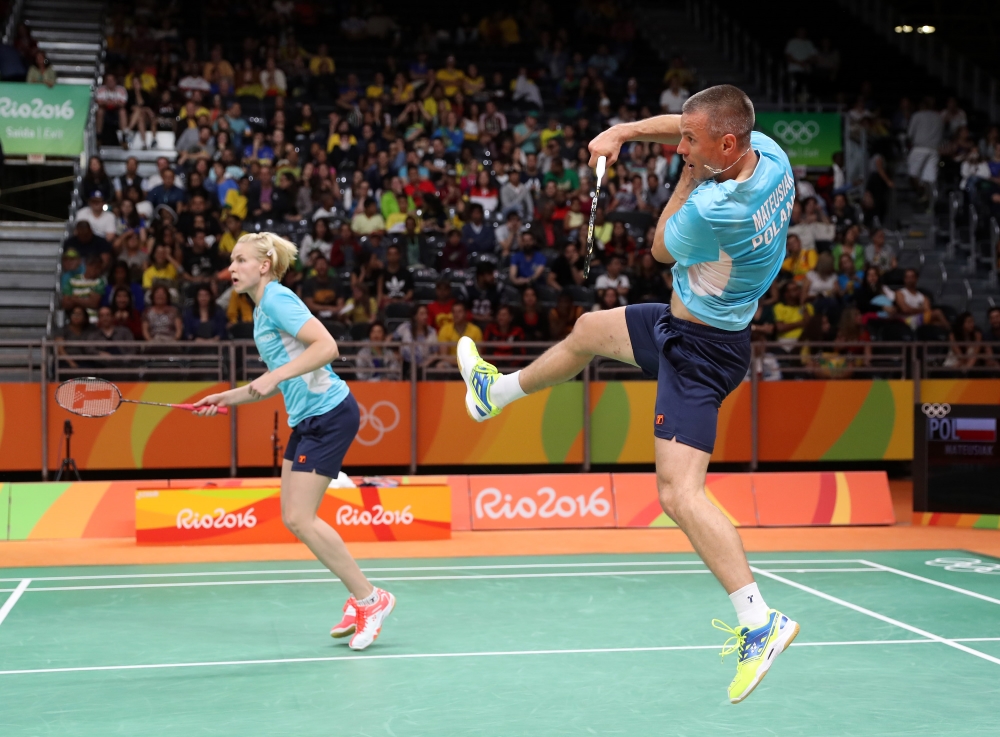
Olympic and Paralympic News

Zhang & Wang: Stars With Different Legacies 4 June 2023
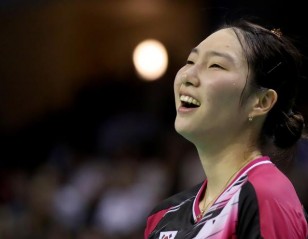
Sung Energised by Recent Successes 1 March 2017
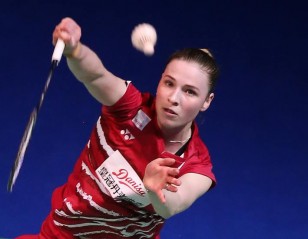
Line Kjaersfeldt Targets GPG Success 20 February 2017
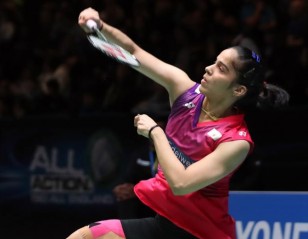
Saina Nehwal: ‘I Feel Lighter On Court’ 20 January 2017
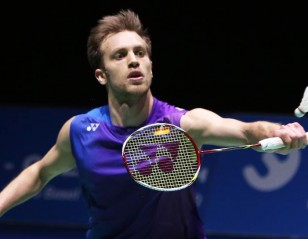
Zwiebler Hungry Despite Setbacks 18 January 2017
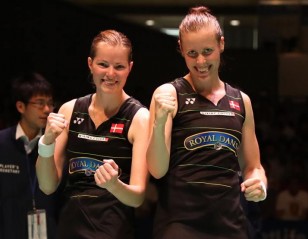
Danish Duo Relish Rio Memories 17 January 2017
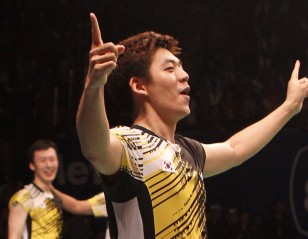
Men’s Doubles – 2016 in Review 27 December 2016
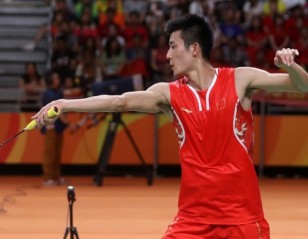
Badminton Leads China Ratings 1 September 2016
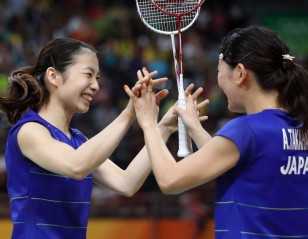
Badminton on Olympic Channel 30 August 2016
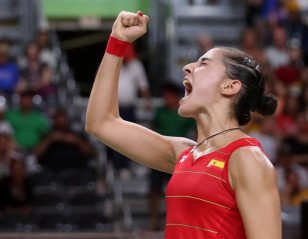
European Resurgence in Rio 26 August 2016
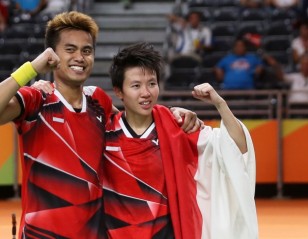
Bouncing Back in Style 25 August 2016
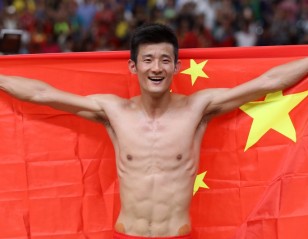
Lee’s ‘Long’ Suffering Continues – Men’s Singles Final: Rio 2016 20 August 2016
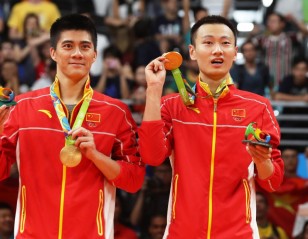
Serves – Malaysia, Wrong! – Men’s Doubles Final: Rio 2016 19 August 2016
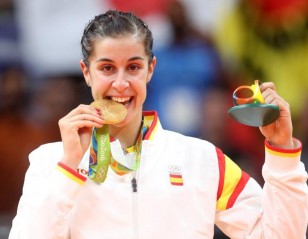
Latina Carolina Reigns! – Women’s Singles Final: Rio 2016 19 August 2016
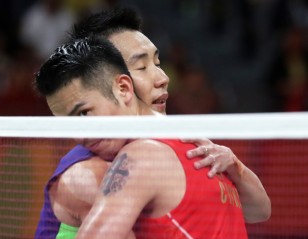
Lin Dan Dethroned – Men’s Singles Semi-finals: Rio 2016 19 August 2016
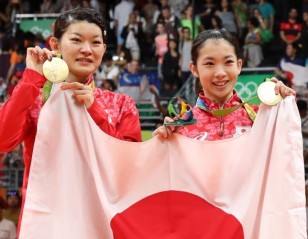
Golden First for Japan – Day 8 – Women’s Doubles Final: Rio... 18 August 2016
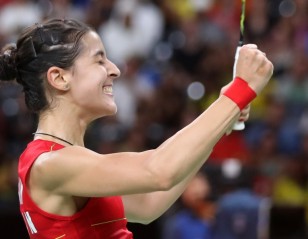
Marin-Sindhu Battle for History – Women’s Singles Semi-finals: Rio 2016 18 August 2016
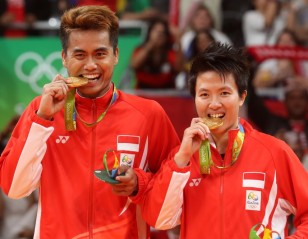
Golden Day for Indonesia – Mixed Doubles Final: Rio 2016 17 August 2016
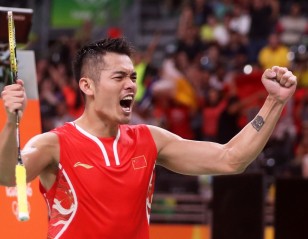
Lin Survives; Lee Cruises – Day 7 – Men’s Singles Quarter-Finals: Rio... 17 August 2016
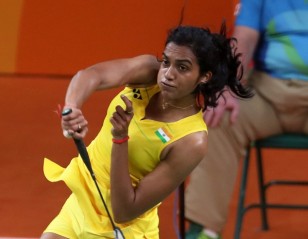
Sindhu Sizzles into Semis – Day 6 Session 2: Rio 2016 17 August 2016
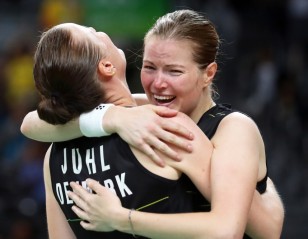
History-Making Danes Thwart China – Day 6 Session 1: Rio 2016 16 August 2016
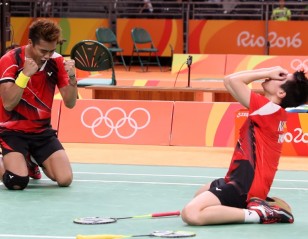
China’s Doubles Giants Humbled – Day 5 Session 2: Rio 2016 15 August 2016
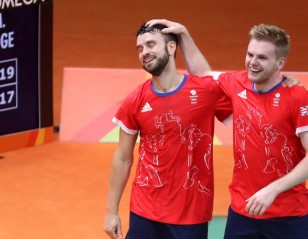
Fu/Zhang Ride Out Storm – Day 5 Session 1: Rio 2016 15 August 2016
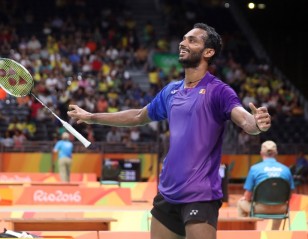
Jorgensen Chugs On – Day 4 Session 2: Rio 2016 15 August 2016

Quarter-Finals Drawing Attention – Rio 2016 15 August 2016
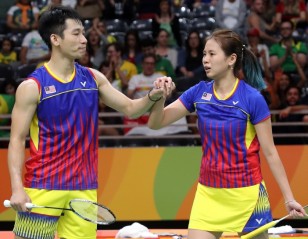
Chan/Goh in Semi-finals – Day 4 Session 3: Rio 2016 14 August 2016
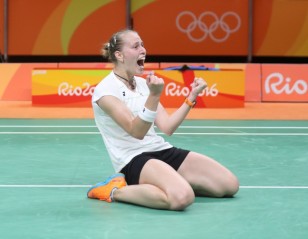
Nehwal Falls to Ulitina – Day 4 Session 1: Rio 2016 14 August 2016
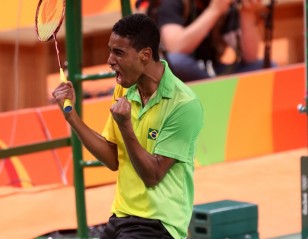
Brazil Badminton Grabs Spotlight 14 August 2016
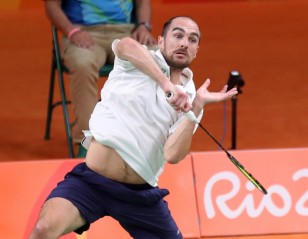
Evans Shakes Off Oliveira – Day 3 Session 3: Rio 2016 13 August 2016
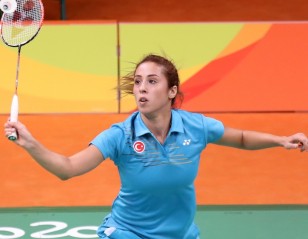
Ellis/Langridge Through – Day 3 Session 2: Rio 2016 13 August 2016
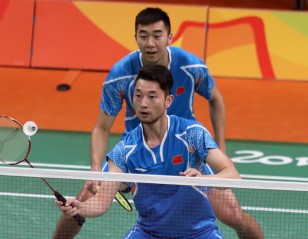
World Champs Out – Day 3 Session 1: Rio 2016 13 August 2016
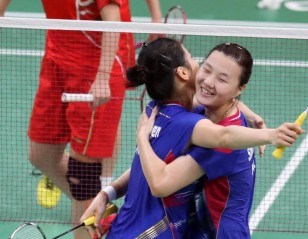
Koreans Double Their Account – Day 2 Session 3: Rio 2016 12 August 2016
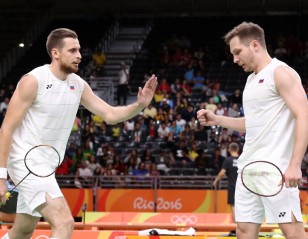
Ivanov/Sozonov in Quarters – Day 2 Session 2: Rio 2016 12 August 2016
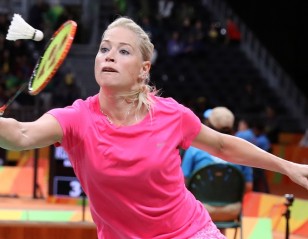
Mixed Doubles Drama in Group B – Day 2 Session 1: Rio... 12 August 2016
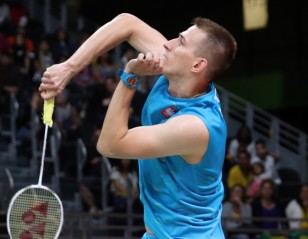
Cordon Falls to Dziolko – Day 1 Session 3: Rio 2016 12 August 2016
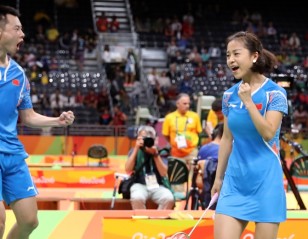
Xu/Ma Stage Escape – Day 1 Session 2: Rio 2016 12 August 2016
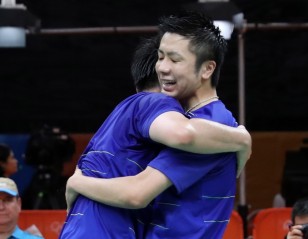
Endo/Hayakawa Clinch Thriller: Day 1 Session 1 – Rio 2016 12 August 2016
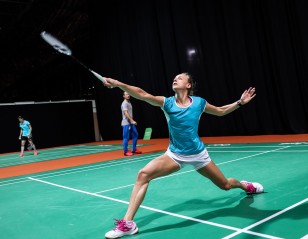
Double Duty in Rio! 11 August 2016
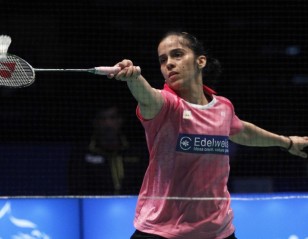
Top Guns Ready to Fire 11 August 2016
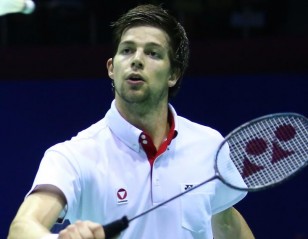
Under No Illusions 10 August 2016
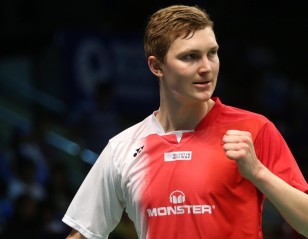
Danes Hope to Capitalise on Strong Season 10 August 2016

A New Carolina, Says Rivas 9 August 2016
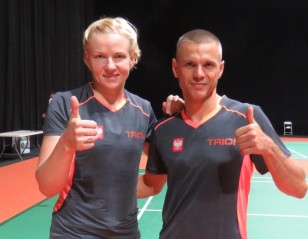
Fifth Olympic Salvo for Mateusiak 8 August 2016
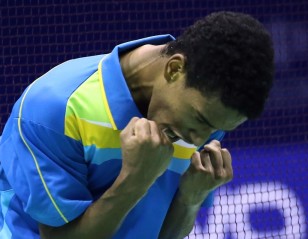
Savouring the Olympic Flavour 6 August 2016
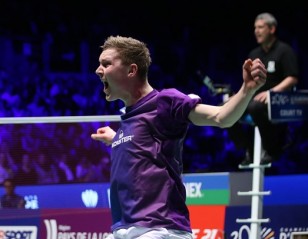
Singles Preview: The Promise of Epic Battles 6 August 2016
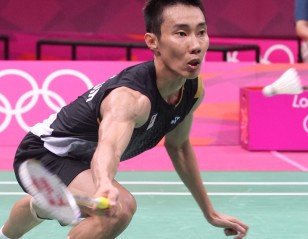
A First for Flag-Bearer Lee 4 August 2016
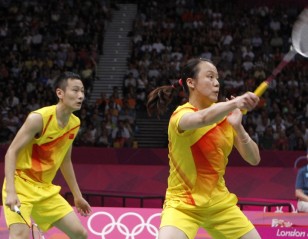
Zhang/Zhao the Opening Act 3 August 2016
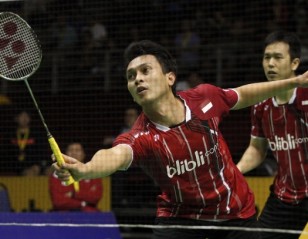
Doubles Preview: Group Surprises Lurk for the Unwary 1 August 2016
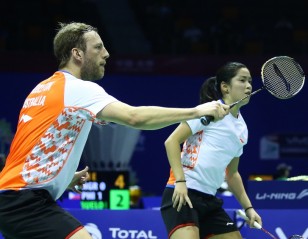
Rio Countdown: Aussies Living a Dream 29 July 2016
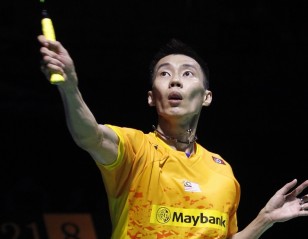
‘One Match at a Time’ 28 July 2016
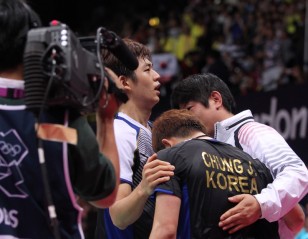
Olympic Channel Launch on August 21 28 July 2016

Rio Countdown: Ygor Oliveira’s Samba Secret 28 July 2016
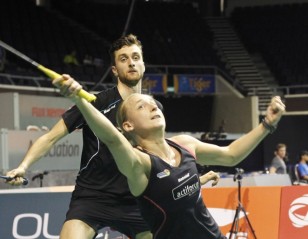
Rio Countdown: Dutch Duo Seek to Re-create Magic 27 July 2016
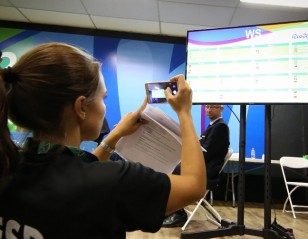
Contenders Brace for Hard Battles 27 July 2016
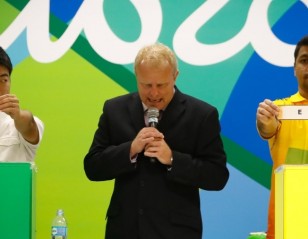
Possible Lee-Lin ‘Semis’ Showdown 27 July 2016
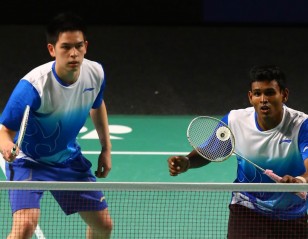
Rio Countdown: Australian Duo Look to Make Impact 26 July 2016
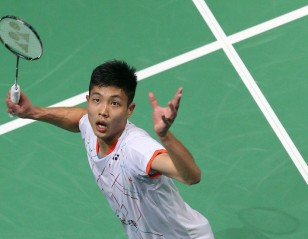
Rio Countdown: Chou Riding High on Confidence 25 July 2016

Mechanics of the Olympic Draw 22 July 2016
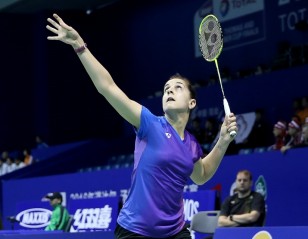
Lee, Marin Lead Seedings 21 July 2016
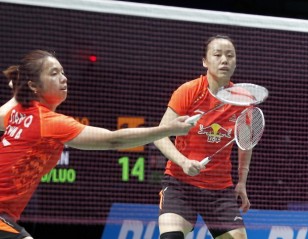
No Rio Repeat for Olympic Champs 19 July 2016

BWF Launches Olympic Website 11 July 2016
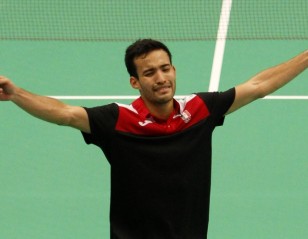
Mexico Completes Olympic List 5 July 2016

Australia Make Rio Picks 10 June 2016
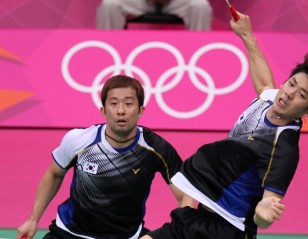
Badminton to Feature in Olympic Channel Programming 7 June 2016
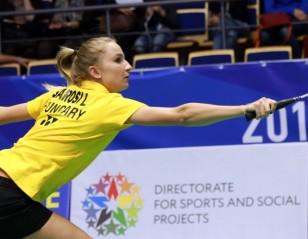
Trio Get Rio 2016 Tripartite Places 25 May 2016
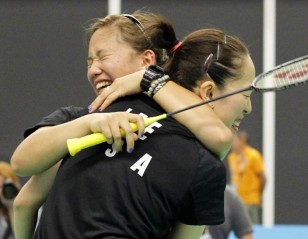
Provisional List of Olympic Qualifiers Published 5 May 2016
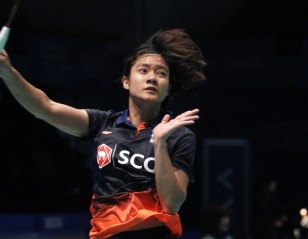
Continental Championships: The Home Stretch to Rio Begins 24 April 2016
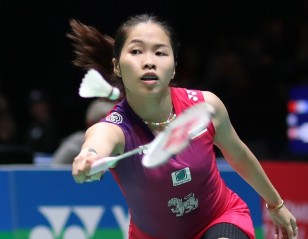
Calmer, Tougher Intanon Believes She Can Get Better 19 April 2016
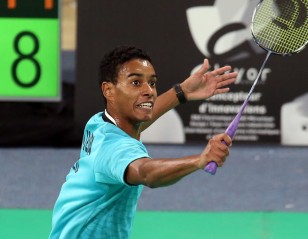
Ygor Oliveira’s Samba Secret 8 April 2016
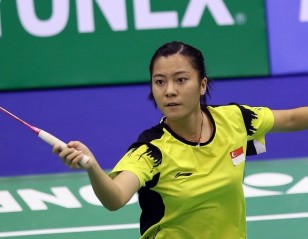
Liang Xiaoyu Sniffs Olympics Chance 15 March 2016
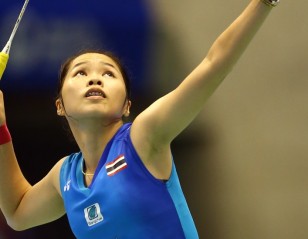
Intanon Ready for Battles Ahead 2 March 2016
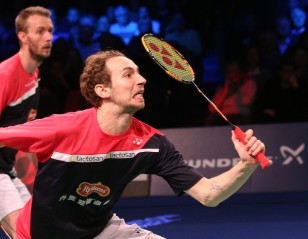
Race to Rio: Close Call for Doubles Contenders 18 January 2016
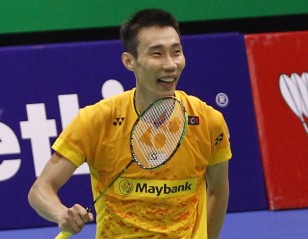
Race to Rio: Chen Leads, Lee Close Behind 14 January 2016
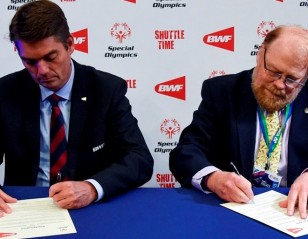
Special Olympics Embrace BWF Shuttle Time 26 October 2015

Høyer: Innovation and Integrity Key Ingredients 16 May 2015
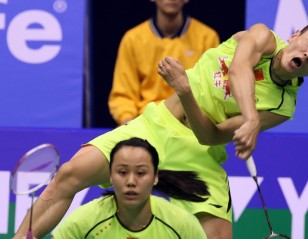
Rio 2016: The Race Begins 4 May 2015



















